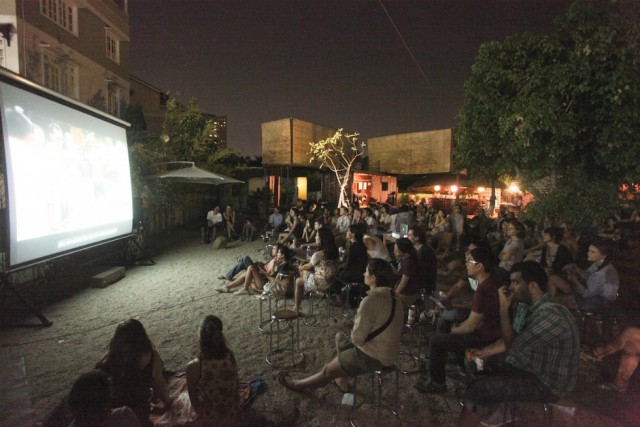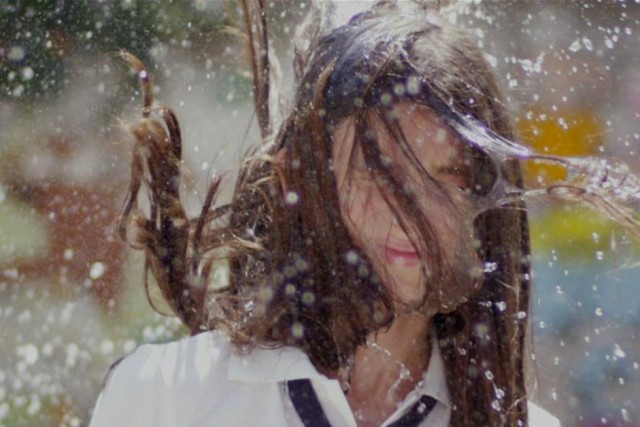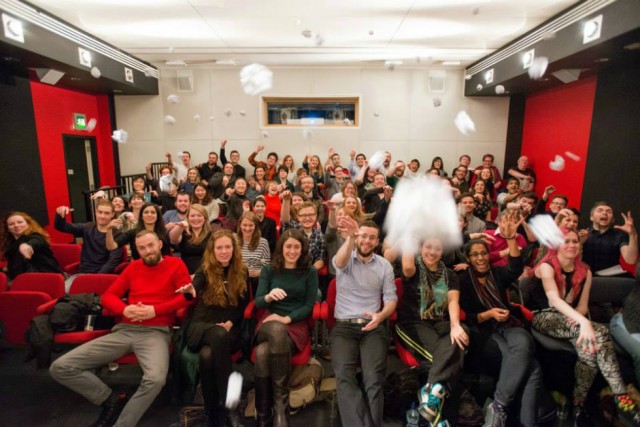“A welcome retreat for cineastes on both a local and international scale”: Future Shorts Festival 2015
The largest pop-up (and free) short film festival of its kind continues its global tour in Liverpool this weekend, and is full of potential award-winners, finds Heather Garner…
The cinema experience can be a trying one for the seasoned film buff these days. Rather than having your full attention on directorial and acting talent, you’re more likely to be distracted by talking, stifled coughs, and the distracting mobile phone light of the completely oblivious person in the row ahead – all of which can soon turn a sociable outing into an unsociable test of patience. Surely there is another way to collectively watch films?
Since 2003, the annual Future Shorts Festival has been asking the same question. The largest pop-up film festival of its kind, audience experience is a key consideration within the Future Shorts ethos, and has accumulated a huge global community of film enthusiasts as a result. The festival now boasts a screening network of 300 cities worldwide, including London, Glasgow, Edinburgh, Barcelona, Tokyo and Odense. This year, Liverpool’s LEAF Café plays proud host, and its fair to say that audiences may be the first to see a potential award-winner: Future Shorts has previously featured 2011 Oscar winner God of Love and the 2011 Sundance winner Deeper than Yesterday.
Swapping the chain cinema experience for pop-up screens in bars, tents, cultural institutes and tea shops, and presented with a programme filled with some of the best national and international short films — alongside live music and art at some venues – this is an evening that encourages discussion, both at each screening venue and online. Further to this collective experience, the audience’s unified voice is heard by allowing each individual to nominate their favourite short film for a Future Shorts Audience Award: an accolade both established and emerging filmmakers go head-to-head for.
This Sunday’s programme features an eclectic mix of genres from animation and comedy, to drama and documentary. Perhaps the most in-keeping with the festival’s experiential desire is the slightly unsettling short Schoolyard (2014), by director Irene Dragasaki. Using a series of slick images, Dragasaki induces emotions within the viewer not entirely dissimilar to the off-beat compositions of Surrealism. A pen silently falls to the floor, a basketball misses the hoop, and the eerie classroom is left deserted, as we see uniform-clad students leave the schoolyard — the observations of which leave ample room for questions of meaning and symbolic significance to be mulled over as the evening progresses.
Quality animation is by no means a genre monopolised by Disney and Pixar, as proved by Sare Shafipour’s moving animation The Tree (2014). At only five minutes in duration, there is more to this tale than colourful characters or amusing plot lines, as a woman and a tree are bonded in the midst of war. On one level, the tale speaks of companionship; on another, it is a heartfelt discovery of our relationship with nature.
Continuing with the programme, this emphasis on mutual compassion and companionship is brought into sharp focus in the documentary format of Hannes Vartiainen and Pekka Veikkolainen’s Emergency Calls (2013). It is easy to slip comfortably into the feeling of certainty and security that the routine of our day to day existence can impose, yet, through the inspiration of authentic emergency calls and radio traffic, Vartiainen’s and Veikkolainen’s disruptive short demonstrates that the terra firma of our lives is nought but an illusion. Instead, we are moved to the realisation that the solace we find in the each other is the only true foundation upon which we can rely.
Highlighting the essential dramatic and comedic elements of the filmic medium, Thomas Baerten and Wim Geudens’s De Smet (2014) has a new take on the classic love triangle — or, in this case, love quadrangle. The De Smet brother’s form a harmonious and predictable existence living next door to each other until the arrival of an attractive woman on the street sends their comfortable routine into chaos in (as I’m sure you can imagine) a darkly comic turn of events.
By placing the big-budget Hollywood blockbusters firmly to one side, Future Shorts Festival has succeeded in generating a welcome retreat for cineastes on both a local and international scale. By drawing together diverse genres over the course of an evening and allowing the audience to truly engage in the creative offerings, the experience of watching films is opened up beyond the confines of the cinema and is all the more joyous for it.
Heather Garner
See Future Shorts Festival (15+) at 6.30pm this Sunday 2 August 2015 at Liverpool’s LEAF Tea Shop – free entry
UK tour continues at London’s Bar 90 (29/07), Wilderness Festival (08/08), CCA Glasgow (14/08), and Edinburgh’s Wee Red Bar (15/08)
Full list of global venues here








